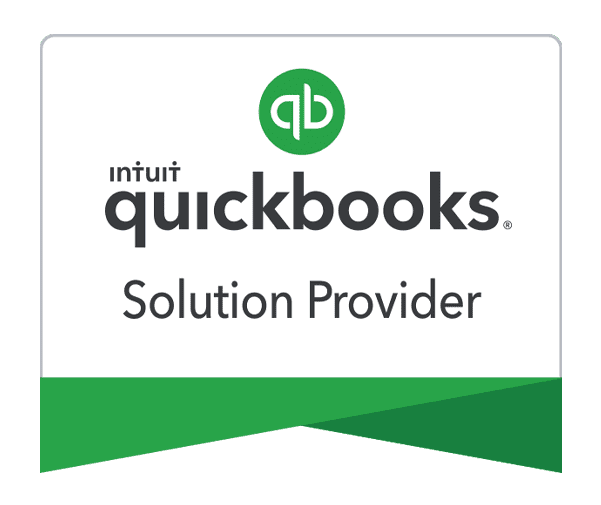Just register for the free trial below and we will send you everything you need to evaluate QuickBooks Online including 30-day access, the full 76-page QuickBooks Online Guide (details everything that you can do in the software) plus the video training library. Free end-to-end consultation and support are included so if you need any help along the way, just let us know!

Paygration, Inc.
When it comes to financial records, even a small error or omission can have significant consequences. For example, accidentally entering a transaction in the wrong period can distort financial statements and mislead decision-makers. This is why setting closing dates in QuickBooks Online is a crucial practice for safeguarding the accuracy and integrity of financial records.
In this article, we’ll discuss the significance of closing dates in QuickBooks Online, how to set them up, and best practices for their usage.
What are closing dates in QuickBooks Online?
Closing dates in QuickBooks Online refer to the date at which a financial period is considered closed for editing. Once a closing date is set, it restricts changes to transactions before that date. This feature helps maintain the integrity of your financial records, preventing accidental or unauthorized alterations that could skew your financial statements.
If you would like to try the full version of QuickBooks Online Advanced, click here to get a free 30-day no-commitment trial plus access to the full video training library.
Setting up Closing Dates in QuickBooks Online
In the upper right corner of the QuickBooks Online dashboard, click on the gear icon and navigate to Account and Settings. Navigate to the Advanced tab, and then select Accounting.
Next, locate “Close the books” option, toggle it to one, and enter the closing date. Choose the date that corresponds to the end of your last closed financial period.
Setting up closing dates in QuickBooks Online
After selecting the closing date, click the Save button to save your closing date settings.
Using Closing Dates in QuickBooks Online
Data Entry and Editing: After the closing date has been set, any transactions dated on or before that date are considered closed. These transactions can still be viewed, but they cannot be edited or deleted without removing the closing date restrictions.
Adjustment Entries: If you need to make adjustments or corrections to closed transactions, use the journal entries in QuickBooks Online. This allows you to create adjustment entries that won’t violate the closing date restrictions. Make sure to document these adjustments clearly for reference.
Audit Trail: QuickBooks Online automatically maintains an audit trail that logs all changes made to your financial data, including transactions made before the closing date. This audit trail provides transparency and accountability, allowing you to track any modifications.
Financial Reporting: Closed periods serve as a reference point for historical financial data. When generating financial reports in QuickBooks, the software will consider the closing date and only include transactions after that date in your reports. This ensures that your financial statements accurately reflect closed and open periods.
Using closing dates in QuickBooks Online reports
For more information about closing dates in QuickBooks Online, watch the video below.
Why are closing dates in QuickBooks Online important?
- Data Integrity: Closing dates in QuickBooks Online act as a barrier, preventing unauthorized or accidental changes to historical transactions. Without closing dates, there’s a risk that someone might inadvertently alter critical financial records, leading to inaccuracies that can have serious consequences.
- Compliance with Regulations: Many businesses are subject to regulatory requirements that mandate accurate financial record-keeping and reporting. Setting closing dates and maintaining accurate historical data is often a legal requirement. Failure to comply with these regulations can result in penalties or legal issues.
- Audit Trails: When you set closing dates in QuickBooks, the system automatically creates an audit trail that logs all changes made to your financial data. This audit trail provides transparency and accountability by documenting who made changes and when.
- Efficient Financial Reporting: Closing dates ensure that your financial statements are based on reliable historical data. This is essential for evaluating your business’s performance, setting goals, and creating budgets.
- Streamlined Period-End Processes: When you close a financial period, it signifies that you’ve completed all necessary financial activities for that period, such as reconciliations and adjustments. This clear demarcation helps you stay organized and ensures that you don’t accidentally mix transactions from different periods.
- Historical Reference: Closed periods serve as a reference point for historical financial data. Whether you need to compare current performance to previous years or respond to inquiries from stakeholders, having accurate, closed historical periods makes this process more efficient and reliable.
Wrap Up
Setting up and using closing dates in QuickBooks Online is a valuable practice to maintain data integrity, enhance security, and ensure compliance with regulations. By following the steps and best practices discussed above, you can effectively protect your historical financial data while keeping your accounting records accurate and reliable.
















